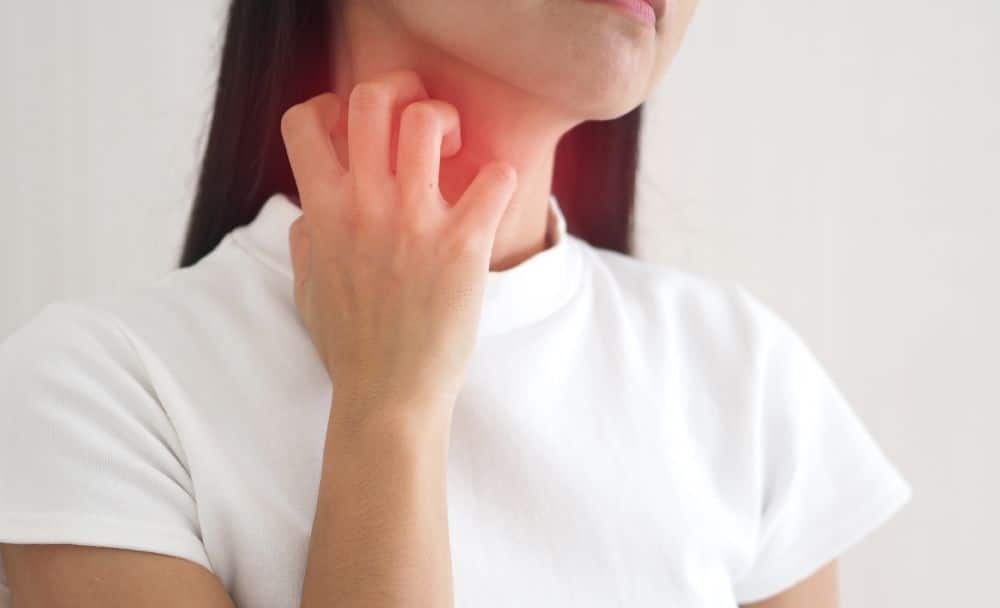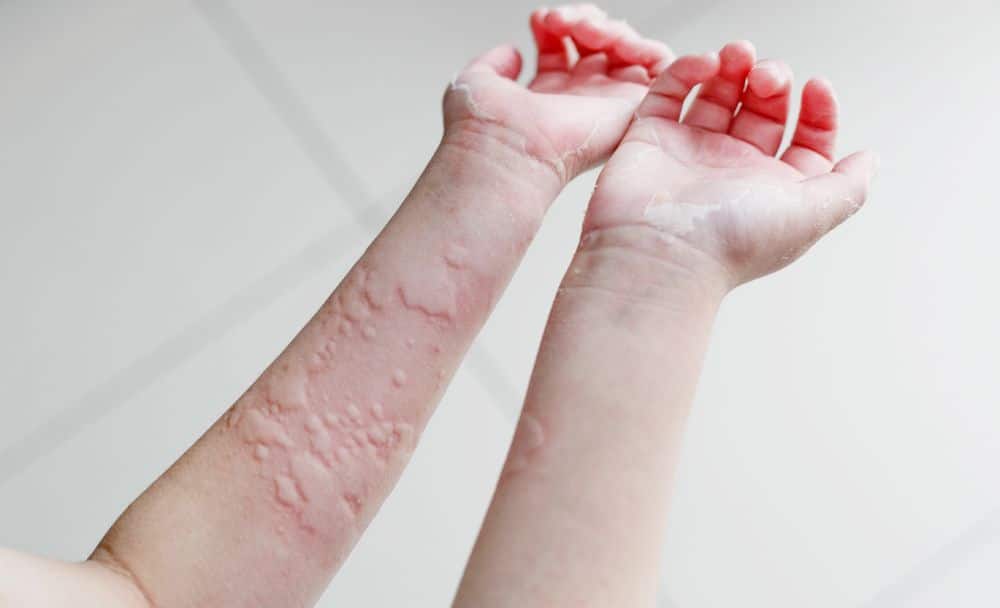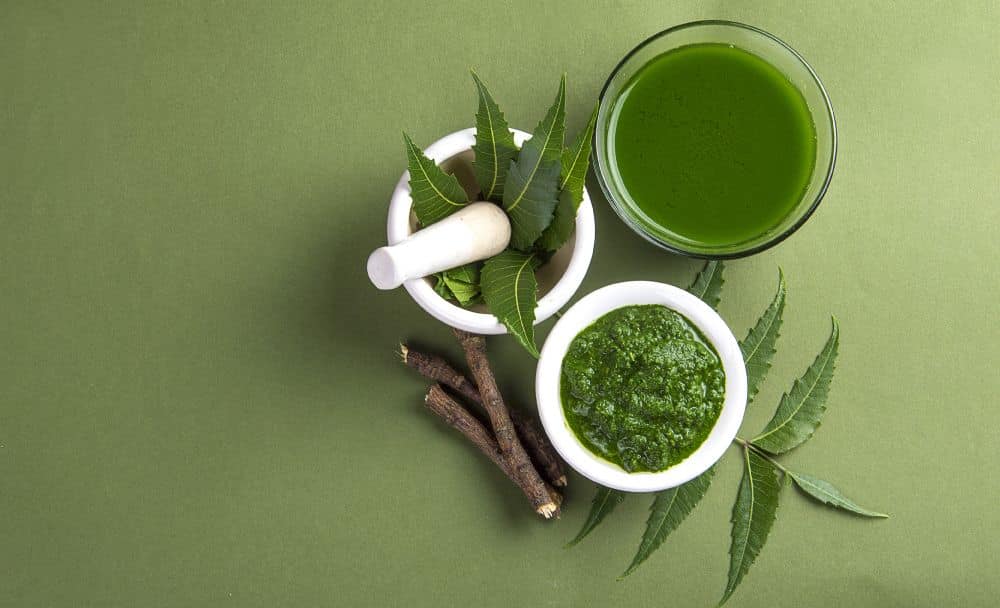Reviewed By Dr. Vipin Bihari Sharma
Urticarial, commonly known as hives, is a skin condition characterized by raised, itchy, and often red welts on the skin. It is a quite common condition affecting people of all ages and sexes, especially young adults, causing discomfort and distress. [1] Urticarial can occur as an acute or chronic condition and can be triggered by various factors. Understanding the various causes, the symptoms, the diagnosis, and the treatment options for urticaria is essential for effective management and relief. In this article, we will try to learn about urticaria, exploring the urticaria causes, common triggers, urticaria symptoms, diagnostic approaches, available urticaria treatment options, and lifestyle measures that can help manage this bothersome skin condition.
What is Urticaria?
To explain what is urticarial condition, you must know that it refers to a skin condition characterized by the sudden appearance of itchy, raised welts or bumps on the skin. The welts on the skin can vary in size and shape and often appear in clusters. It can be an acute urticarial, lasting for a few hours to several weeks, or chronic urticarial, persisting for more than six weeks. Here is a chart explaining the various types [1]:
| Type of urticaria | How long it usually lasts | What are the primary features |
|---|---|---|
| Acute urticarial | Below 6 weeks | Reoccurrence of symptoms two times in a week at a minimum |
| Spontaneous chronic urticarial | Above 6 weeks | Reoccurrence of symptoms two times in a week at a minimum |
| Physical chronic urticarial | Above 6 weeks | Dermatographic urticaria, Cold urticarial, Heat urticaria, Delayed pressure urticaria, Solar urticaria, Vibration urticaria, Aquagenic urticaria, Contact urticaria, Cholinergic urticarial |
| Episodic chronic urticarial | Above 6 weeks | Reoccurrence of symptoms two times in a week at a minimum |
What are the causes of Urticaria?
Various factors can trigger Urticaria. Some of the main urticaria causes include:
Medications:
Drugs such as penicillin, aspirin, nonsteroidal anti-inflammatory drugs, sulfonamides, thiazide diuretics, oral contraceptives, and angiotensin-converting enzyme inhibitors, among several others, can be among the main urticaria causes.
Various foods:
Foods such as nuts, eggs, fish, seafood, chocolate, meat, cow’s milk, fruits, mushrooms, fermented foods, spices, and spirit, among others.
Respiratory allergens:
Pollen, mold spores, mites, animal dandruff, and hairs may cause urticarial.
Infections:
Other urticaria causes include respiratory infections such as sinusitis, urinary tract infections, hepatitis, infectious mononucleosis, tonsillitis, dental abscesses, and parasites that may cause urticaria.
Insect bites:
This can be one of the urticaria causes, especially in children.
Physical factors:
External factors such as pressure, hot, and cold can be yet another of the urticaria causes. [1]
What are the symptoms of urticarial?
The primary urticaria symptoms are the development of raised, red welts on the skin. They often cause redness, blistering, and itching and may sometimes also have a burning sensation.
Apart from the characteristic welts, individuals with this condition may experience other urticaria symptoms, such as swelling (angioedema) of the lips, face, hands, or feet. Some individuals may also experience a burning sensation or pain in the affected areas. If it is dermatographic urticarial there may also be trauma to the skin. [1]
How can urticarial be diagnosed?
To diagnose Urticarial, a healthcare provider will start by collecting a detailed medical history and then conducting a thorough physical examination. They should be questioned about systemic complaints, stress, food intake, and regular or occasional medication use. [1] This will help identify potential triggers and rule out other underlying conditions. It is generally classified as acute urticarial or chronic urticarial, and diagnosis of both is done based on clinical presentation and history. [2]
What are the various treatment options of urticarial?
Some of the main urticaria treatment options include:
Avoidance of Triggers:
Identifying and avoiding triggers is an important step in urticaria treatment. This may involve avoiding known allergens, heat, excessive sweating, tight clothing, certain medications such as aspirin and nonsteroidal anti-inflammatory drugs, which may worsen symptoms, or other specific triggers identified through a medical evaluation. Consumption of alcohol should also be eliminated to manage Urticarial. Other factors that aggravate the condition and must be avoided include stress, sleep disturbance, and infections, among others. [1]
Antihistamines:
These are commonly prescribed as a first-line urticaria treatment. They help block the effects of histamine, a substance released during an allergic reaction, and can provide relief from itching and reduce the appearance of hives and thus is considered the best medicine for urticarial.
Corticosteroids:
In more severe cases or when symptoms do not respond to antihistamines, short-term use of oral or topical corticosteroids may be recommended to reduce inflammation and relieve symptoms of Urticarial.
Immunomodulators:
As a chronic urticaria treatment, which does not respond to antihistamines or corticosteroids, medications that modulate the immune system, such as omalizumab may be prescribed.
Leukotriene inhibitors:
These medications, such as montelukast, can be used in combination with antihistamines to control symptoms of allergic urticarial in some individuals. [1]
FAQs
- What are some lifestyle measures that can help with urticaria treatment?
Certain lifestyle measures can help with urticaria treatment or manage and prevent urticaria outbreaks. These include avoiding known triggers, wearing loose-fitting clothing, maintaining a cool environment, practicing stress management techniques, and adopting a healthy diet.
- How to cure urticaria permanently?
To know how to cure urticaria permanently, some of the following Ayurvedic measures can be adopted:
Abhyanga: This is a type of massage done using warm oil.
Use of Herbs: Herbs such as neem, Haridra, Shirish, vasa, and ashwagandha help reduce the rashes on the skin.
Swedana: This steaming therapy helps out the doshas from the body.
Arogyavardhini: Helps in the treatment of chronic urticarial
Virechana: This panchakarma helps with allergic urticarial by giving an immediate response.
Conclusion
Urticarial, or hives, can significantly impact an individual’s quality of life due to its bothersome symptoms. Learning about the Urticarial causes, triggers, symptoms, diagnostic procedures and the available treatment options for urticaria is essential for effective management, urticaria treatment, and relief. By knowing what is urticarial, identifying the triggers, following prescribed medications, and incorporating lifestyle measures, individuals with urticaria can minimize symptoms and improve their overall well-being. With proper care and management, individuals with urticarial can find relief and regain control over their skin health.
Disclaimer: This article is written from a health and wellness perspective only and is not a piece of medical advice. Kindly seek the help of a certified medical practitioner before initiating any treatment.



















